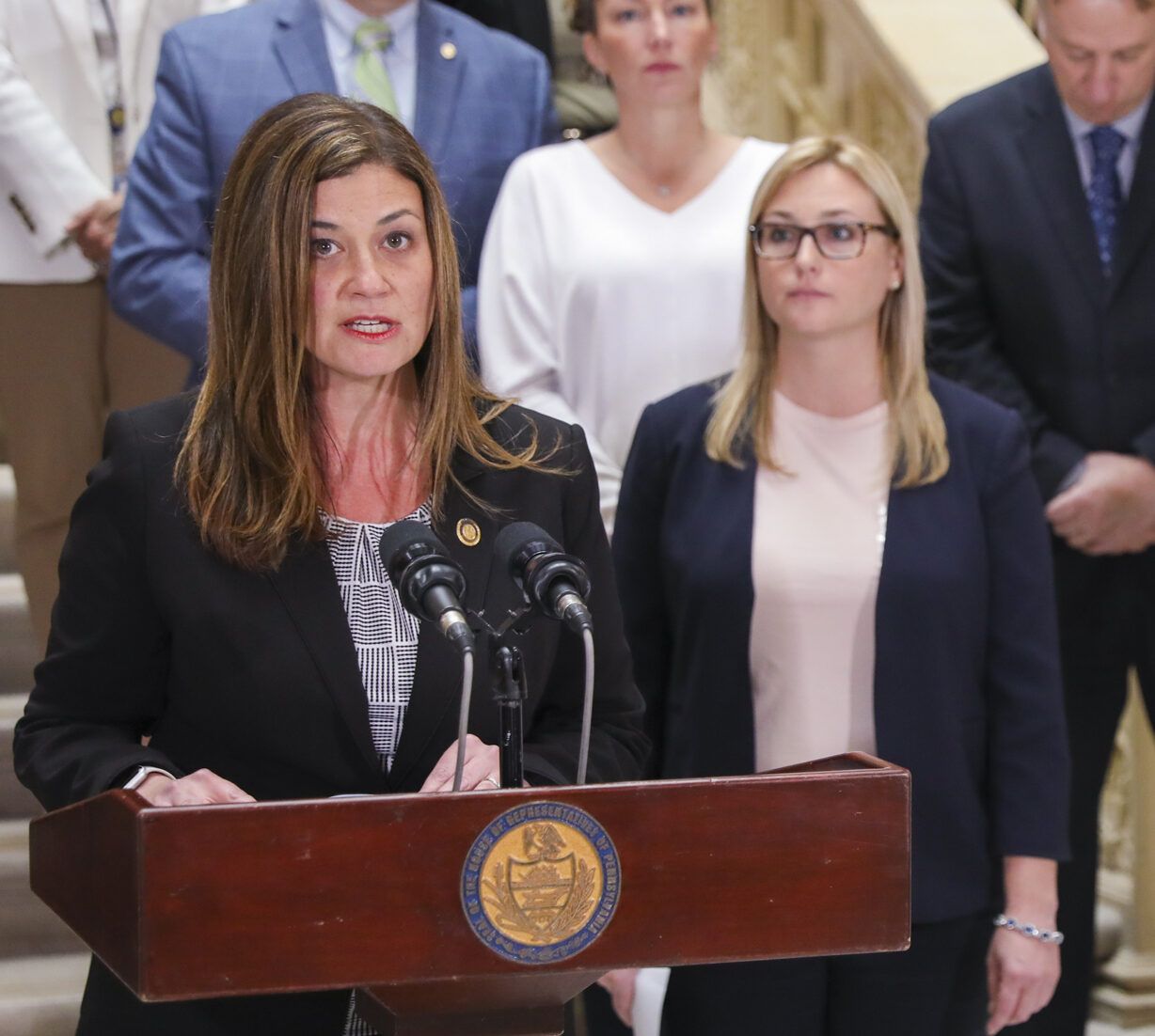Shapiro Admin.’s Approach to Economic Development: Fewer Projects, Bigger Impact

Pennsylvania’s government hopes to put together a new economic development strategy to increase competition.
“We’re clear-eyed about where Pennsylvania stands in the national and global competitive business landscape,” said Rick Siger, secretary of the Pennsylvania Department of Community and Economic Development (DCED), during a recent event at Kutztown University. “And although we have incredible assets for business growth, we also know that right now, other states are ahead of us.”
The state’s last economic development blueprint was developed during the Rendell administration, according to Siger. He portrayed the forthcoming plan as a guiding g light for the next decade. “We have to shoot high, be ambitious, and set big goals.”
Siger’s big goals appear to be streamlining the nearly 200 DCED programs. The plan is to eventually make recommendations that will include eliminating programs that aren’t working. That would allow DCED to focus “on a smaller number of high-impact programs that are most relevant to businesses of all sizes,” Siger told DVJournal. “Also being considered is increased emphasis on the innovation capabilities we have across Pennsylvania by investing in the areas where our regions excel and using aggressive approaches to grow in key sectors where we lead the U.S. and the world.”
This reexamination of Pennsylvania’s business development strategy comes after an Independent Fiscal Office study of the state’s tax credits policy. It found just seven of the state’s 20 tax credits were accomplishing their legislative intent. The review noted that only the Entertainment and Neighborhood Assistance discounts received positive marks from the IFO.
Those credits cost taxpayers more than $500 million. They will cost taxpayers even more in the future now that the legislature has increased program caps for the Film Production credit, the Entertainment Economic Enhancement Program, and the Research and Development credit.
The Commonwealth Foundation said it is time for the taxpayer-funded subsidies to stop.
“Pennsylvania allocated a whopping $1.363 billion to corporate welfare this last fiscal year alone—that money could be better spent improving our business climate and strengthening our state’s competitiveness,” Elizabeth Stelle, director of policy analysis at the Commonwealth Foundation, told DVJournal. “Gov. Shapiro should make that his priority—rather than picking economic winners and losers through elaborate corporate welfare programs.”
That suggestion is unlikely as long as Shapiro is in office. He supports state-guided industrial policy, particularly in the green energy sector. Siger is on board, too.
“The commonwealth has always been a national energy leader and has played a pivotal role in each energy transition. Pennsylvania is now positioning itself as a leader of our country’s clean energy future and is working to create thousands of new, family-sustaining jobs,” Siger said.
Green energy advocates want the Keystone State to be exactly that on energy transition: a keystone to the future.
“We’ve seen considerable growth and considerable job growth, particularly in renewable generation like solar and wind,” said Rob Altenburg, director of PennFuture Energy Center. “We’re seeing a whole lot of growth in energy efficiency and…we see a lot of potential growth in the electric vehicle industry…those are really the things that we should be investing in and making sure we bring them to Pennsylvania.”
What Altenburg did not mention was the cost to taxpayers for green subsidies, including up to $3,000 from the state for buying a battery electric vehicle.
Business groups agree a diverse energy sector is needed, but they see deregulation as a faster and more efficient approach.
“Business, labor, Democrats, and Republicans all agree that our current permitting system is outdated and inefficient and that Pennsylvania loses out on significant investment as a result,” said Luke Bernstein, president and CEO of the Pennsylvania Chamber of Business and Industry. “That’s why we developed a comprehensive permitting reform framework and have rallied behind the bipartisan reforms contained within Senate Bill 350, which passed the state Senate earlier this year. By building on Gov. Shapiro’s efforts to improve state operations through the Office of Transformation and Opportunity, these reforms would further help to modernize, streamline, and add much-needed transparency to the current process.”
Stelle agreed. but also pushed for a lower income tax. “By slightly reducing the corporate net income tax (CNIT) in 2023, Pennsylvania climbed the Tax Foundation’s business climate index, advancing two places to 31st in the nation. That’s a step in the right direction, but we can’t stop there. We must continue tearing down government barriers to job creation, reducing harmful taxes, and cutting the unnecessary regulatory red tape that’s costing our state $9.2 billion per year.”
Regardless of what DCED decides on its economic development plan, Chamber officials exude confidence in the future of the state. “Pennsylvania was ranked as having the most diverse economy out of all 50 states, and our $915 billion GDP makes us the sixth-largest state economy in America,” commented Bernstein. “By enacting bipartisan, pro-growth tax and regulatory reforms, we will be able to attract even more employers to our commonwealth. Doing so will help strengthen our economy and make Pennsylvania an even better place to work, live, and raise a family.”



